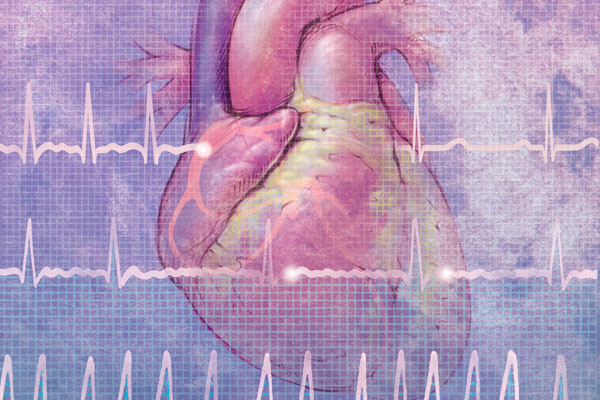Does atrial fibrillation harm the brain?
It’s known fact that atrial fibrillation increases the risk of a stroke. But regardless from atrial fibrillation, appears the risk of damage to the brain and increase limitations of cognitive abilities – it’s the result of a meta-analysis of American researchers.
Approximately from 60 to 100 times the heart beats per minute. That is about 80,000 to 150,000 beats per day. No wonder that the heart sometimes gets out of rhythm. Most commonly it’s called the atrial fibrillation, particularly in the elderly people. By estimated from 500,000 to one million people in US are affected by atrial fibrillation.
Typical signs of the cardiac arrhythmia is an irregular pulse and symptoms, such as palpitations, shortness of breath and exhaustion. However, often atrial fibrillation is stay unnoticed. While it is in contrast to ventricular fibrillation, atrial fibrillation not immediately life-threatening, but sufferers have an increased risk of embolism, particularly for an embolic stroke related.
Cognitive impairment without stroke.
As a result of a stroke, often occur among others cognitive impairment. But now a large-scale of meta-analysis has shown that atrial fibrillation can affect the performance of the brain without a stroke. The research team led by Jeremy N. Ruskin from the General Hospital in Massachusetts concluded that in patients with atrial fibrillation, the risk for cognitive impairment and dementia by 1.4 times was increased – regardless whether they had suffered a stroke or not. Considered if the patients had a stroke only once, the risk increases to three times.
Although the data is due to the heterogeneity of the studies should be interpreted with caution, as the study authors conceded, but the data suggest that atrial fibrillation provoke risk of mental performance disorders. For this reason it is particularly important to seek treatment from the arrhythmia by a doctor.